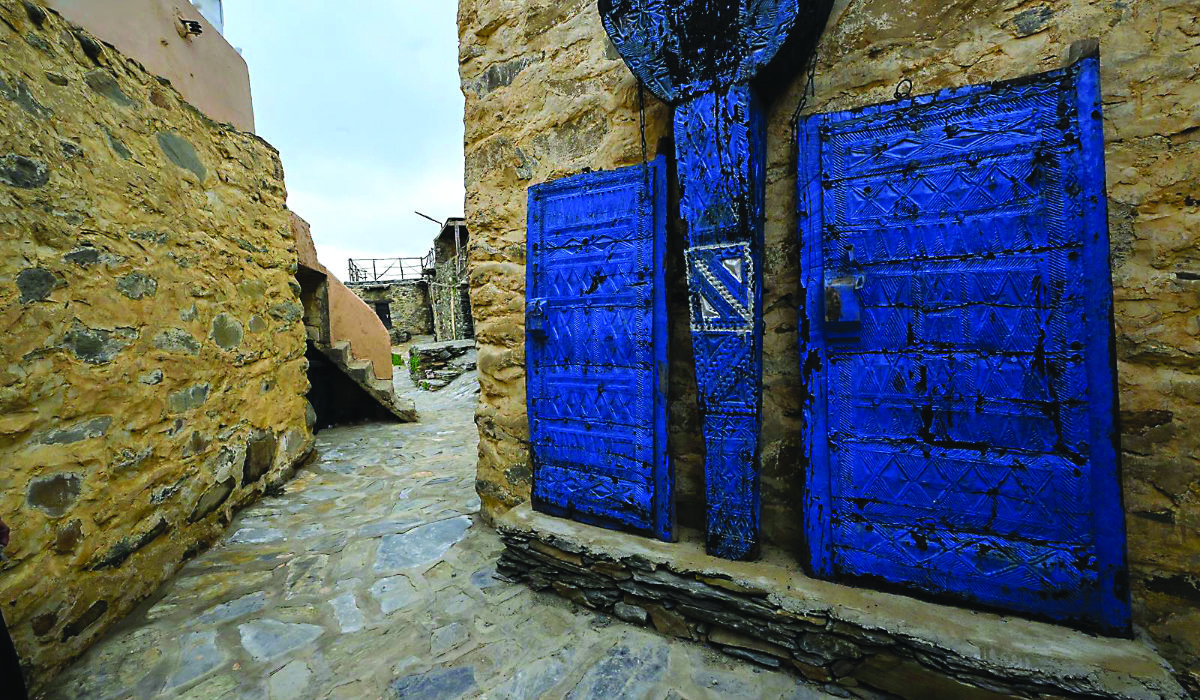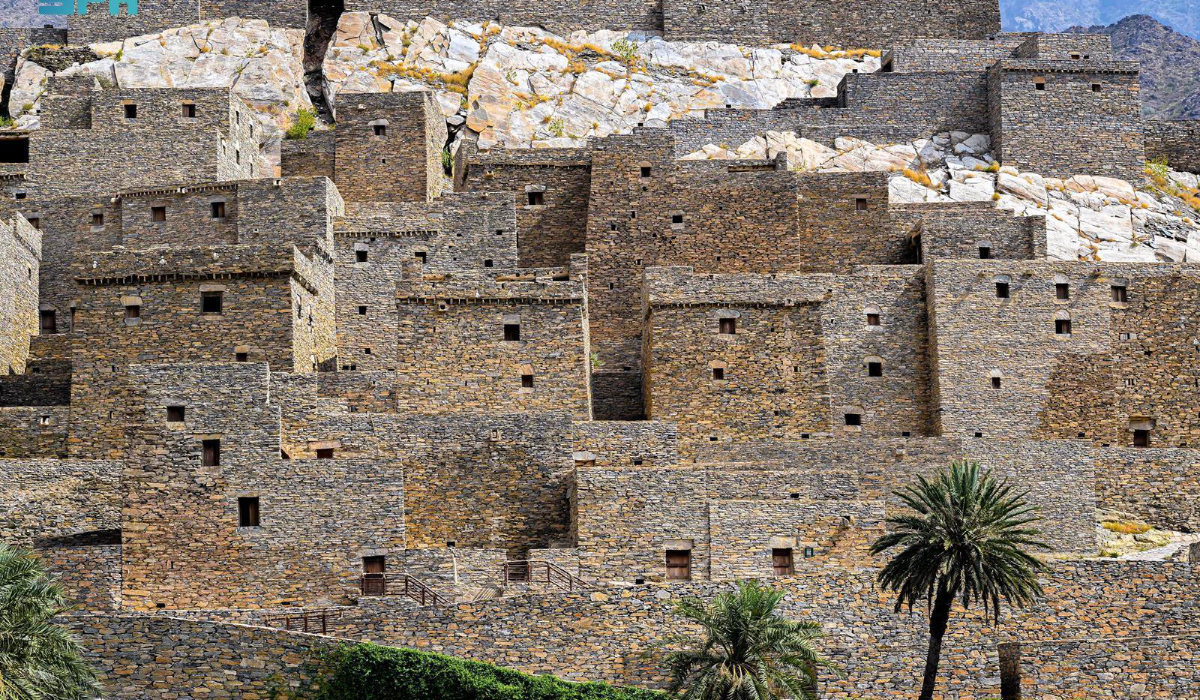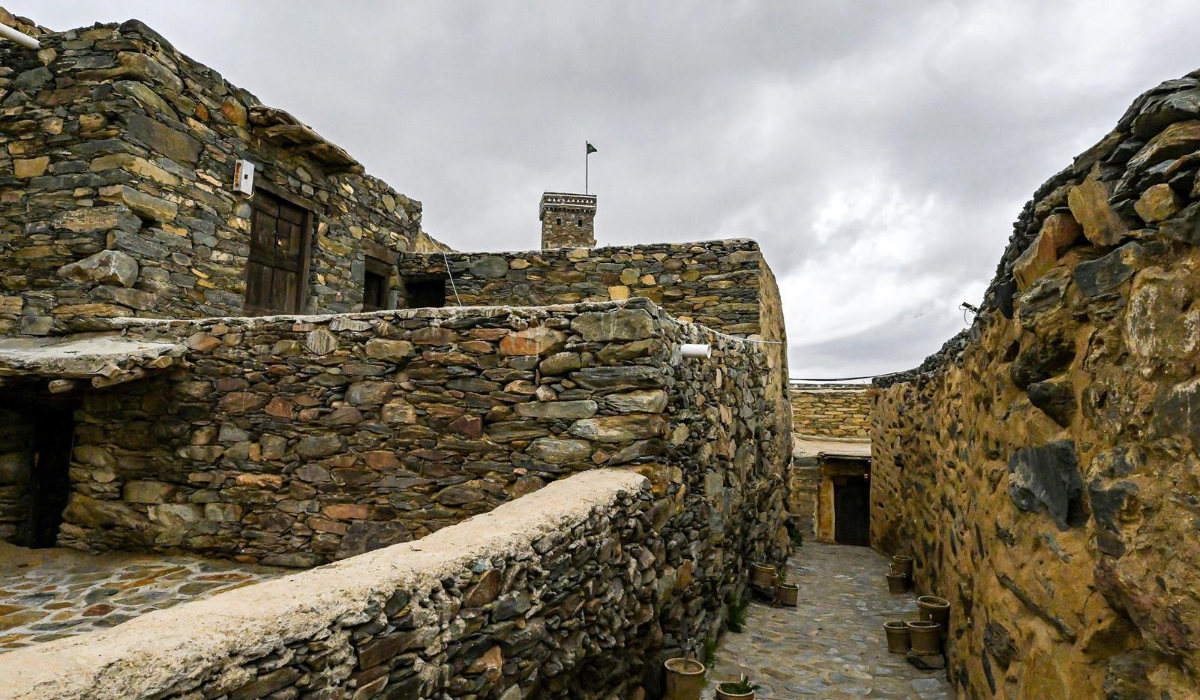RIYADH: The historical castles and fortresses that dot the landscape of Baha in southwest Saudi Arabia serve as bright reminders of the country’s great founding story.
From quaint villages to bustling settlements, each corner of the region has its own piece of history in the form of majestic castles and fortresses.
These architectural marvels serve as proud caretakers of tradition, telling stories from bygone ages and adding to the rich tapestry of Saudi civilization.

Baha’s architectural marvels serve as proud caretakers of tradition, telling stories from bygone ages and adding to the rich tapestry of Saudi civilization. (SPA)
Tourists and visitors are captivated by the architectural brilliance of Saudi forefathers in constructing these palaces and fortresses, admiring their skill in crafting stone edifices.
Among the notable landmarks is Bin Raqoush Palace, now a hub of cultural and historical significance, drawing dignitaries and visitors from far and wide.
FASTFACTS
● Among Baha’s notable landmarks is Bin Raqoush Palace, now a hub of cultural and historical significance, drawing dignitaries and visitors from far and wide.
● Efforts to revitalize have gained traction, particularly during national celebrations like Saudi Founding Day.
Similarly, the Bakhrush bin Alas Fortress in Qura governorate; the ancestral castles of Al-Osaidhan family; and the charming village of Shabraqah, north of Baha city, hold their own historical charm.

Baha’s architectural marvels serve as proud caretakers of tradition, telling stories from bygone ages and adding to the rich tapestry of Saudi civilization. (SPA)
The imposing Al-Akhawayn Fortress overlooks Al-Malad village, a monument to history amid ancient heritage homes. Meanwhile, Al-Ayed Heritage Guesthouse in Bani Kabir village and the Mishref Palace in Baljurashi add to the region’s allure, commanding views of the historic Saturday Market.
Despite the passage of time and exposure to diverse elements, these ancient fortifications stand tall, a testament to the craftsmanship of builders and their resilience.
With their distinctive conical shapes and towering heights of 20-25 meters, these structures boast intricate designs and are adorned with white marble stones, exuding a captivating aura.

Baha’s architectural marvels serve as proud caretakers of tradition, telling stories from bygone ages and adding to the rich tapestry of Saudi civilization. (SPA)
Originally built for surveillance during times of conflict, these strongholds now serve as poignant reminders of the region’s history, tucked within village courtyards or towering atop hillsides, offering a glimpse into a bygone era.
Efforts to revitalize have gained traction, particularly during national celebrations like Saudi Founding Day.
By organizing heritage events and artistic showcases, authorities aim to preserve Saudi cultural identity, encourage awareness for the country’s rich history, safeguard cultural heritage and societal norms, spotlight local talents, and improve tourist experiences at heritage sites.
With locals taking pride in their heritage and taking on their restoration as well, these sites have become magnets for visitors, photographers, and enthusiasts alike, offering opportunities to document and explore diverse aspects of Saudi heritage.
Their eagerness to capture the essence of these historical sites has led to a flurry of activity, with documentaries being produced in various fields including architecture, fashion, jewelry, culinary arts, agriculture, and weaponry.





























